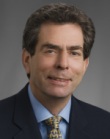|
by
Andrew Gilman
CommCore Consulting Group
 For
those who don't like prep sessions, dry runs, murder boards, and
mock interviews, here's a bit of advice from the professionals
who play on the biggest stages: For
those who don't like prep sessions, dry runs, murder boards, and
mock interviews, here's a bit of advice from the professionals
who play on the biggest stages:
I recently had a conversation with
Franc D'Ambrosio, the actor/singer who played the role of
Phantom (Phantom of the Opera), longer than any other performer
in the world. Franc says that a great performance before the
live, ticket-paying audience is in direct relationship to the
rigor and effort put into practice and rehearsal. He's even
sounded this out with his peers in the sports world -- gold
medal winning Olympic athletes.
Elite performers say that their
practices have to be so rigorous and true-to-life that by the
time they get into true competition, game or match, their
performance is almost automatic. If you practice well, slight
changes in a game or show won’t throw you off. To the contrary,
if you haven’t rehearsed enough, little things can have a big
negative impact on performance.
D'Ambrosio's comments track one of the
central points in Malcolm Gladwell's Outliers. Gladwell
cites research that it takes 10,000 hours of practice of
constant repetition and coaching to get good at sports, playing
musical instruments and countless other endeavors.
I'm not sure why, but an increasing
number of executives have been trying to avoid the serious
rehearsals. We have heard reasons such as: "I've been through
training before." Or "I'll read through the material tonight
before tomorrow's pitch, (speech or interview)." Or "Make sure
that the newer presenters get rehearsed."
I'm not a psychologist, so I won't
analyze what's behind all the reasons why business people don't
want to rehearse. Here are a few of the ways to avoid
rehearsing:
I'm too busy. There are other
things more important to do today. I've done this a million
times before. I don't like to show any weakness to my staff in the rehearsal room. We haven't finished the speech so how can I practice if the content isn't done. I'm
already pretty good. I can just go with the answers in the FAQ
document.
The short answer to all of these
reasons (excuses) is that to avoid the communicators disease of
"woulda, coulda, shoulda" it's imperative to invest the time in
training, practice and rehearsal.
Here are a few suggestions to maximize
your rehearsal:
-
• Place rehearsal
time on the calendar. Once it's on your schedule,
it's harder to take
off.
• If you don't
like a big crowd, rehearse in front of a smaller group.
• Practice the toughest questions.
• Work on both style and content.
• Use video, even if it's a "flip"
type camera so you can watch yourself
and make adjustments.
• If you don't like the
performance or an answer, keep working at it until
you get
it right.
Clichés are around for a reason. This
one makes sense: Perfect practice makes perfect performance.
Andrew D. Gilman is president and CEO of
CommCore
Consulting Group.
He's a lawyer, award-winning journalist, and co-author of the
best-selling book
Get To The Point. CommCore is headquartered in Washington,
D.C.,
and has offices in New York City and Los Angeles.
More Articles |
Submit Your Article |
PR Subjects
About Public Relations Homepage
Contact Us
|



